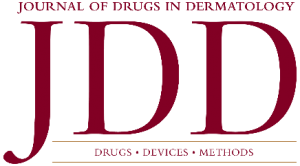Does the NIH article on complementary health approaches for skin conditions reflect science?
August 25, 2016
by John Weeks, Publisher/Editor of The Integrator Blog News and Reports
By chance I was in Snowbird, Utah covering the annual conference of the American Association of Naturopathic Physicians (AANP) late July when the NIH National Center for Complementary and Integrative Health posted a new “Clinical Digest” entitled “Skin Conditions and Complementary Health Approaches: What Does the Science Say?” I ran into a colleague who is an internationally-respected expert on integrative dermatology Michael Traub, ND, DHANP, CCH, FABNO and asked him what he thought. Traub had seen the piece. He quickly made it clear that whatever “science” NIH was consulting, it certainly was an anemic version of that which informed his own work.
late July when the NIH National Center for Complementary and Integrative Health posted a new “Clinical Digest” entitled “Skin Conditions and Complementary Health Approaches: What Does the Science Say?” I ran into a colleague who is an internationally-respected expert on integrative dermatology Michael Traub, ND, DHANP, CCH, FABNO and asked him what he thought. Traub had seen the piece. He quickly made it clear that whatever “science” NIH was consulting, it certainly was an anemic version of that which informed his own work.  Traub, a 35-year clinician and integrative health policy leader, is the author of a 110-page textbook on dermatology, “Essentials of Dermatological Diagnosis and Integrative Therapeutics.” I made a mental note to follow-up with him. I scheduled an interview three weeks later. Traub spoke with a non-judgmental tone but did not mince words. “I think that it must not have been written by a subject matter expert.” The NCCIH document examines the science behind integrative approaches for atopic dermatitis, psoriasis, acne, impetigo and rosacea. “It has more disinformation and misinformation than accurate information,” he added. I told him that this was strong language. He laughed. “Do you want me to use strong language?” Instead of going there he continued. “Whoever wrote it has created the impression that there are few studies with generally small sample sizes.” He then referenced the multiple studies not referenced that he uses “whenever I give lectures.” These are studies “that are not done by clinicians but by researchers.” “I think who wrote it did not do a very good review of the literature,” he added. “ My question: who wrote this? Was it a graduate student? Somebody tasked to it who doesn’t know much? Any literature review must have been cursory. This does not reflect what is out there.” We explored whether there was a pattern, perhaps, that the NCCIH was only willing to to cite a few of the highest impact journals. Traub said he saw no pattern of selectivity. He merely stresses that the review was inadequate. I asked him to send a couple of representative examples of research that was not cited in the NCCIH document. He sent these within five minutes of the end of our call:
Traub, a 35-year clinician and integrative health policy leader, is the author of a 110-page textbook on dermatology, “Essentials of Dermatological Diagnosis and Integrative Therapeutics.” I made a mental note to follow-up with him. I scheduled an interview three weeks later. Traub spoke with a non-judgmental tone but did not mince words. “I think that it must not have been written by a subject matter expert.” The NCCIH document examines the science behind integrative approaches for atopic dermatitis, psoriasis, acne, impetigo and rosacea. “It has more disinformation and misinformation than accurate information,” he added. I told him that this was strong language. He laughed. “Do you want me to use strong language?” Instead of going there he continued. “Whoever wrote it has created the impression that there are few studies with generally small sample sizes.” He then referenced the multiple studies not referenced that he uses “whenever I give lectures.” These are studies “that are not done by clinicians but by researchers.” “I think who wrote it did not do a very good review of the literature,” he added. “ My question: who wrote this? Was it a graduate student? Somebody tasked to it who doesn’t know much? Any literature review must have been cursory. This does not reflect what is out there.” We explored whether there was a pattern, perhaps, that the NCCIH was only willing to to cite a few of the highest impact journals. Traub said he saw no pattern of selectivity. He merely stresses that the review was inadequate. I asked him to send a couple of representative examples of research that was not cited in the NCCIH document. He sent these within five minutes of the end of our call: - In the Journal of Drugs and Dermatology, “Inflammatory acne management with a novel prescription dietary supplement”
 reported that at 8 weeks 81 percent of the patients “rated their appearance as much or moderately better compared with baseline and three-quarters (76 percent) of the patients “thought the combination supplement “was at least as effective as previous treatment with oral antibiotics.”
reported that at 8 weeks 81 percent of the patients “rated their appearance as much or moderately better compared with baseline and three-quarters (76 percent) of the patients “thought the combination supplement “was at least as effective as previous treatment with oral antibiotics.”
- In a 2014 article in the same journal, “Diet and Acne Update: Carbohydrates Emerge as the Main Culprit”, the conclusions are that, as Traub put it in an attached note, “the role of diet in the development of acne is no longer a myth.”
- He offered a 2015 study in the Journal of Translational Medicine on the Mediterranean diet linking fish oils and fish consumption with the severity of psoriasis.
- A 2015 study in Dermatology found a strong association between coeliac disease and psoriasis and high level of reversal of psoriasis after a gluten free diet.
- Cochrane Review of Probiotics for the Prevention and Treatment of Atopic Dermatitis with 3,023 participants found that 8 of 13 studies (61.5 percent) “reported significant effect on prevention of atopic dermatitis after supplementation with probiotics and/or prebiotics” and 5/13 studies (38.5 percent) “indicated significant reduction in the severity of atopic dermatitis after supplementation.”




















SHARE